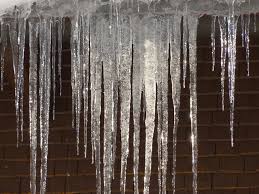How to Keep Your Pipes from Freezing

We’ve been lucky with relatively warm winter weather the past few weeks, but it wasn’t all that long ago that the temperatures in the northeast hit record lows. We’re only in February, which means that another deep freeze is sure to hit before winter makes its exit.
A drastic dip in the temperature or prolonged periods of freezing temps can wreak havoc on plumbing. There’s a real risk that pipes could freeze, which is not only a major inconvenience but it the pipes could burst. The destruction caused by burst pipes is a real nightmare to clean up; not to mention the fact that it can be extremely expensive. Plus, flooding from burst pipes could put your and your family in danger, as there’s the potential for mold growth or electrocution.
To prevent your pipes from freezing, make sure you keep the following tips in mind before the next big freeze sets in.
Add Insulation
If you have any pipes that are exposed, make sure you wrap them in insulation. If the pipes are left exposed, the chances that they will freeze are much greater. The more insulation you wrap around your pipes, the less of a risk of freezing there will be. You can purchase foam pipe insulation at most home supply stores at an affordable price. If you really want to prevent your pipes from freezing, forego the foam insulation and wrap them with thermostatically controlled heat cables. These cables will automatically turn on when the temperature hits a certain degree, warming your pipes and preventing them from freezing.
Seal Up Leaks
Take a look at the areas where plumbing pipes are located. If you spot any air leaks, seal them up. You can easily do so with insulation or caulk. When the temperatures are particularly frigid, leaving even the smallest air leak open could expose your pipes to enough cold air to make them freeze up.
Turn Off Outside Faucets
Hopefully, you did this before the winter arrived. If you didn’t and your pipes haven’t frozen yet, consider yourself lucky. You may not be so lucky next time, so make sure you shut off all exterior faucets. If those exterior faucets are turned on, there’s a pretty good chance that the pipes that lead to them will freeze and possibly burst.
Run the Water
It might seem counterproductive, but leaving a small trickle of water running could help to prevent the pipes from freezing. If you have a faucet that is connected to an exterior wall, you also have plumbing pipes located in that wall. Pipes that are situated in exterior walls are more prone to freezing than interior pipes.
When the forecast calls for brutal cold, leave just a small trickle of warm water running out of the faucet. It could save you from serious and costly issues.
Don’t Adjust Your Thermostat
While it’s true that a great way to save money on your utility bill is to adjust your thermostat so that it’s running cooler when you’re not at home or overnight, when it’s extremely cold, avoid this practice. Turning your thermostat down could increase the risk of frozen pipes. When very cold temperatures are predicted, make sure you leave the thermostat running at the same temperature both day and night. This is particularly important at night, as the temperature usually reaches its lowest once the sun sets.
Keep Doors Open
Leave the doors of your cabinets under your skin and around appliances that are located on exterior walls opened. Doing so will allow heat to circulate around the pipes, which could prevent them from freezing.
Prepare before Traveling
A trip to a warm, sunny local is a great way to escape the cold of winter; however, returning home to frozen or burst pipes will surely put a big damper on your vacation euphoria. If you plan on leaving town, make sure you take the proper precautions to prevent your pipes from freezing.
Set all thermostats so that they are running no lower than 55° F. If possible, turn off and drain the main water supply. Also, ask a trusted neighbor, a friend, or a family member to check in your house once a day to make sure that the temperature is warm enough to avoid freezing.
Pipes Froze Anyway?
Despite following these preventative measures, there’s still a chance that your pipes could freeze. If that happens, you’ll know it! – The water won’t run out of a faucet once when it’s turned on.
Try the following to solve the problem and prevent the possibility of a pipe burst:
- Turn the hot water on and leave it on. The open faucet could encourage the hot water to start moving through the pipe, thus thawing it out.
- Try using a hairdryer. Set the dryer to the highest setting and run it along the pipe that’s closest to the faucet. Slowly work your way down to the coldest portion of the frozen pipe.
- Never, under any circumstances, should you try to thaw a frozen pipe with an open flame. There’s a chance that you could start a fire, and that’s way worse than water damage from a burst pipe.
- Call a plumber! If you are unable to resolve the issue on your own, call a plumber. A reputable plumber will be able to thaw your pipes quickly and prevent a possible burst. Furthermore, a plumber will be able to inspect your pipes to ensure they haven’t sustained any damage and install insulation to prevent freezing in the future.
If you frozen pipe has burst, shut off the main water supply valve to your home, leave the faucets running, and call a plumber immediately.
Cold temperatures can be brutal on plumbing pipes. Make sure your home and your family are protected from frozen pipes and pipe bursts by keeping these helpful tips in mind.
Categories: Boiler repair, Plumbing Service